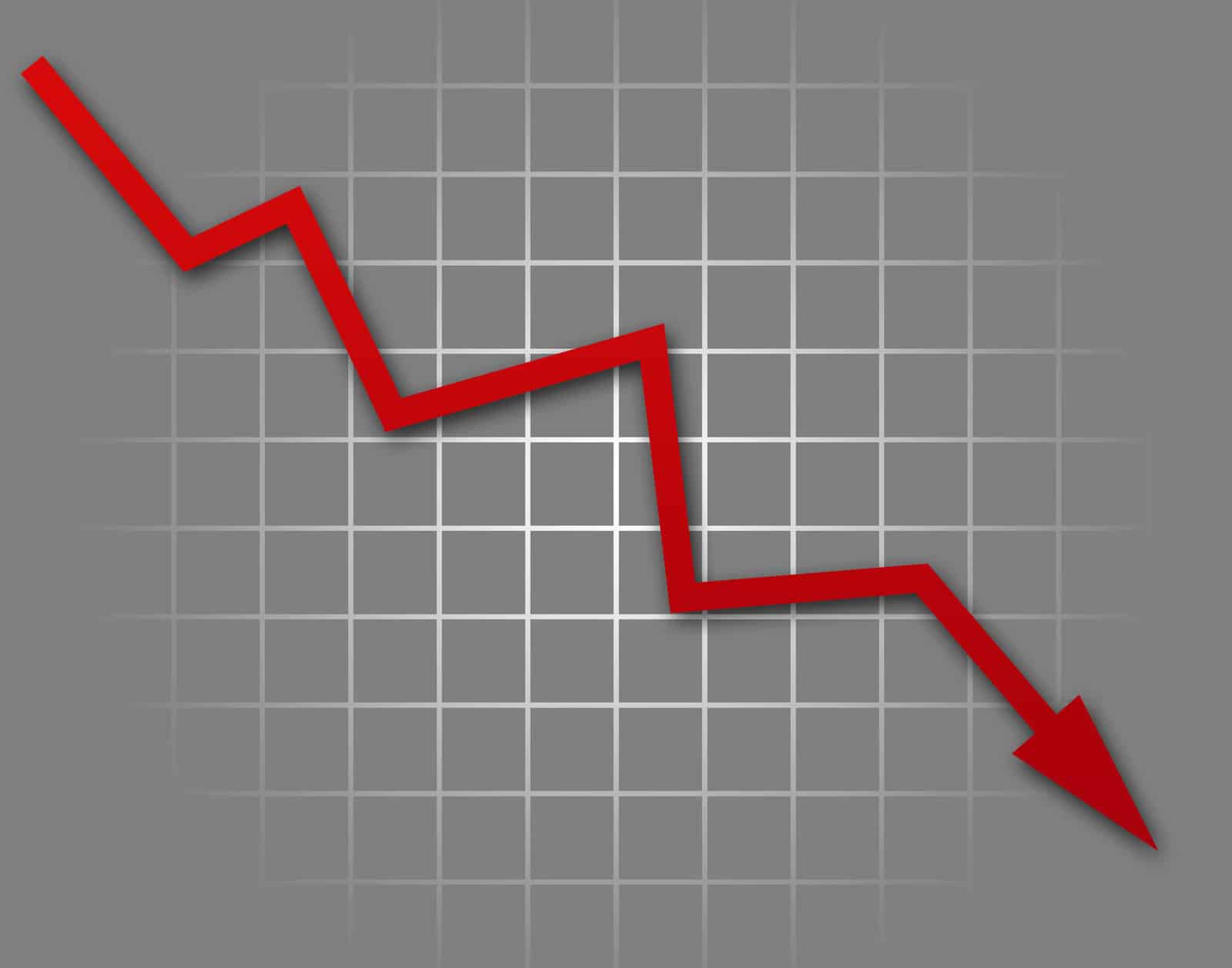Home>Finance>What Happens If You Miss Open Enrollment For Health Insurance?


Finance
What Happens If You Miss Open Enrollment For Health Insurance?
Published: October 30, 2023
Don't miss open enrollment for health insurance! Discover the financial consequences of missing this crucial period and learn how to protect yourself.
(Many of the links in this article redirect to a specific reviewed product. Your purchase of these products through affiliate links helps to generate commission for LiveWell, at no extra cost. Learn more)
Table of Contents
Introduction
Health insurance is a vital component of everyone’s financial well-being and overall security. It provides coverage for medical expenses, ensuring that individuals and families can access the necessary healthcare without incurring significant financial burdens. However, obtaining health insurance is not always a straightforward process. In the United States, there is a specific time period called the Open Enrollment period, during which individuals can sign up for or make changes to their health insurance plans.
In this article, we will explore what happens if you miss the Open Enrollment period for health insurance and the potential consequences of not enrolling during this critical period. We will also discuss alternative options that you may have for obtaining coverage outside of the Open Enrollment period.
Understanding the Open Enrollment period is essential to grasp the significance of missing it. Open Enrollment typically occurs once a year, and its purpose is to allow individuals to sign up for health insurance plans, make changes to their existing plans, or switch to a different plan altogether. It is during this period that insurance companies and marketplaces offer their plans to the public.
However, if you miss the Open Enrollment period, you may find yourself in a challenging situation. Without health insurance coverage, you risk shouldering the full burden of medical expenses, which can be financially overwhelming. Additionally, being uninsured can leave you vulnerable to unexpected medical emergencies, leaving you scrambling to find affordable care.
Stay tuned to learn about the consequences of missing the Open Enrollment period and the various options available for enrolling outside of this timeframe.
Understanding Open Enrollment
Open Enrollment is a specific period during which individuals can enroll in or make changes to their health insurance plans. This period is typically offered once a year, although the specific dates may vary depending on the insurance provider and the country in which you reside. During Open Enrollment, individuals can explore different health insurance plans, compare coverage options, and select the plan that best suits their needs and budget.
One of the critical features of Open Enrollment is that it allows individuals with pre-existing conditions to obtain health insurance coverage. Insurance companies are generally prohibited from denying coverage or charging exorbitant premiums based on an individual’s health status during the Open Enrollment period. This ensures that individuals with health issues have an equal opportunity to access affordable health insurance.
Open Enrollment is also the time when individuals can make changes to their existing health insurance plans. This includes switching to a different insurance provider, changing coverage levels, or adding or removing dependents from the plan. It allows individuals to reassess their healthcare needs and make adjustments accordingly.
It is important to note that missing the Open Enrollment period typically means that you will have to wait until the next Open Enrollment period to enroll in health insurance or make changes to your existing plan, unless you qualify for special circumstances.
Now that we have a basic understanding of what Open Enrollment is, let us explore the potential consequences of missing this critical period.
Consequences of Missing Open Enrollment
Missing the Open Enrollment period can have several significant consequences for individuals and families. Let’s take a closer look at some of the potential repercussions:
Lack of Coverage: The most apparent consequence of missing Open Enrollment is that you may be left without health insurance coverage. Without insurance, you will be responsible for paying the full cost of healthcare services out of pocket, which can be extremely expensive, especially for major medical procedures or emergencies.
Penalties: In some countries, such as the United States, there may be penalties for not having health insurance coverage. These penalties can come in the form of fines or additional taxes on your annual income. Therefore, failing to enroll during the Open Enrollment period may not only leave you without coverage but also result in financial penalties.
Limited Options: Outside of the Open Enrollment period, your options for obtaining health insurance may be limited. Insurance providers generally do not offer their full range of plans and may have stricter requirements for enrollment. This means that you may not have access to the same comprehensive coverage or affordable options that are available during Open Enrollment.
Pre-existing Conditions Exclusion: If you have a pre-existing condition, missing the Open Enrollment period may result in added challenges. In many countries, insurance providers are legally obligated to cover individuals with pre-existing conditions during the Open Enrollment period. However, outside of this timeframe, they may be allowed to impose restrictions or deny coverage altogether for individuals with pre-existing conditions.
Delay in Care: Without health insurance coverage, you may delay or avoid seeking necessary healthcare due to financial concerns. This can have serious consequences for your health, as conditions may worsen or become more complicated if left untreated. Delaying care can also lead to higher medical expenses down the line, as preventive measures are not taken in a timely manner.
Understanding the potential consequences of missing Open Enrollment underscores the importance of enrolling during this critical period. However, if you did miss the deadline, there are still options available for obtaining health insurance coverage.
Options for Enrolling Outside of Open Enrollment
If you missed the Open Enrollment period, don’t panic. There are still options available for obtaining health insurance coverage. Let’s explore some alternative avenues:
Qualifying Life Events: Certain life events may qualify you for a Special Enrollment Period (SEP), allowing you to enroll in health insurance outside of the Open Enrollment period. Examples of qualifying life events include getting married or divorced, having a child, losing previous coverage, moving to a new area, or experiencing other significant changes in your life circumstances. It is crucial to understand the specific eligibility criteria for SEPs and the time window in which you must enroll after the qualifying event occurs.
Special Enrollment Periods: In some countries, such as the United States, there may be additional Special Enrollment Periods available outside of the standard Open Enrollment period. These periods are designed to accommodate specific circumstances, such as the loss of employer-sponsored coverage or the expiration of certain government programs. Checking with your insurance provider or local marketplace can help you determine if you qualify for a Special Enrollment Period and what steps you need to take to enroll.
Short-Term Health Insurance: If you missed the Open Enrollment period but still need coverage for a limited duration, short-term health insurance could be an option. These plans typically provide coverage for a few months up to a year and can be a temporary solution to bridge the gap until the next Open Enrollment period. However, it’s essential to note that short-term health insurance may not provide the same level of comprehensive coverage as traditional plans.
Medicaid and CHIP: Depending on your income and other eligibility requirements, you may qualify for Medicaid or the Children’s Health Insurance Program (CHIP) outside of the Open Enrollment period. These government programs offer low-cost or free health coverage to eligible individuals and families. Check with your local Medicaid or CHIP office to determine if you qualify and what steps you need to take to enroll.
Before exploring these options, it is crucial to assess your healthcare needs, consider your budget, and research the available plans to find the best fit for you and your family. While enrolling outside of Open Enrollment may present challenges, having some form of health insurance coverage is essential for your well-being and financial security.
In the next section, we will discuss the significance of health insurance coverage and why it is crucial to prioritize your enrollment efforts.
Qualifying Life Events
Qualifying Life Events (QLEs) are specific circumstances that make individuals eligible for a Special Enrollment Period (SEP) outside of the standard Open Enrollment period. These events allow individuals and families to enroll in or make changes to their health insurance plans outside of the typical enrollment timeframe. Examples of qualifying life events include:
- Getting married or divorced
- Having a child or adopting a child
- Losing previous health coverage
- Turning 26 and aging out of a parent’s health insurance plan
- Moving to a new area that has different health insurance options
- Experiencing changes in income that affect eligibility for government programs
- Experiencing significant changes in household size
These events are recognized by insurance providers and government marketplaces as significant changes in life circumstances that may warrant a Special Enrollment Period. It’s crucial to understand the specific eligibility criteria for each qualifying life event and the time window in which you must enroll after the event occurs.
When a qualifying life event occurs, individuals typically have a limited period, usually 60 days, to enroll in a new health insurance plan or make changes to their existing coverage. It is important to act promptly and gather any necessary documentation to support your eligibility for the Special Enrollment Period.
For example, if you recently got married, you and your spouse may be eligible for a Special Enrollment Period. You would need to provide proof of marriage, such as a marriage certificate, and enroll in a health insurance plan within the designated timeframe. This allows you to adjust your coverage to accommodate your new family situation.
It’s important to note that each country may have its own specific rules regarding qualifying life events and the accompanying Special Enrollment Period. Therefore, it is essential to check with your insurance provider or government marketplace to understand the eligibility criteria and necessary documentation for each qualifying life event.
Understanding the opportunities that qualifying life events provide is crucial for individuals who miss the Open Enrollment period. These events offer a pathway for individuals and families to obtain the necessary health insurance coverage outside of the typical enrollment timeframe. By taking advantage of the Special Enrollment Period, individuals can ensure that they have the coverage they need to protect their health and financial well-being.
In the next section, we will discuss the availability of Special Enrollment Periods and how they can provide additional opportunities for enrolling outside of Open Enrollment.
Special Enrollment Periods
In addition to qualifying life events, some countries, such as the United States, offer additional Special Enrollment Periods (SEPs) outside of the standard Open Enrollment period. These special periods are designed to accommodate specific circumstances and allow individuals to enroll in or make changes to their health insurance plans.
Special Enrollment Periods can vary in duration and eligibility requirements, but they generally offer flexibility for individuals who experience unique situations. Some examples of situations that may qualify for a Special Enrollment Period include:
- Losing employer-sponsored health coverage
- Experiencing the expiration of other health insurance programs, such as Medicaid or the Children’s Health Insurance Program (CHIP)
- Becoming a dependent or losing dependent status
- Turning 26 and aging out of a parent’s health insurance plan
- Leaving incarceration
During a Special Enrollment Period, individuals have the opportunity to enroll in a new health insurance plan or make changes to their existing coverage. It is crucial to act promptly and take advantage of the limited window of eligibility. Waiting too long or missing the deadline can result in having to wait until the next Open Enrollment period to obtain coverage.
It’s important to note that the availability and requirements of Special Enrollment Periods can vary by country and insurance provider. To determine if you qualify for a Special Enrollment Period, you should reach out to your insurance provider or visit the government marketplace to understand the eligibility criteria and the necessary documentation that may be required.
By understanding the availability of Special Enrollment Periods, individuals who missed the Open Enrollment period can still have additional opportunities to secure health insurance coverage. These periods offer flexibility and can alleviate some of the stress and potential consequences of being uninsured.
In the next section, we will explore another option that individuals can consider if they need temporary coverage outside of Open Enrollment: short-term health insurance.
Short-Term Health Insurance
If you missed the Open Enrollment period and need temporary coverage, short-term health insurance can be an option to consider. Short-term health insurance plans provide limited coverage for a specific duration, typically ranging from a few months up to a year. While these plans may not offer the same level of comprehensive coverage as traditional health insurance, they can provide temporary relief until the next Open Enrollment period.
Short-term health insurance plans are designed to cover unexpected medical expenses, such as emergency room visits and hospitalizations. They can also include coverage for doctor’s visits, prescription medications, and some preventive care services. However, it is important to carefully review the coverage details and exclusions of any short-term health insurance plan to understand the limitations and potential gaps in coverage.
It’s important to note that short-term health insurance plans typically do not cover pre-existing conditions. If you have ongoing healthcare needs or a pre-existing condition, these plans may not be suitable for your long-term healthcare requirements. In such cases, exploring other options, such as qualifying for a Special Enrollment Period or applying for government programs like Medicaid or the Children’s Health Insurance Program (CHIP), may be more appropriate.
When considering short-term health insurance, it’s essential to compare plans from different insurance providers. Look for plans that offer the right balance of coverage, cost, and flexibility based on your specific needs. Keep in mind that premiums for short-term health insurance plans may be lower compared to traditional plans, but you may have higher deductibles and out-of-pocket expenses.
Additionally, it’s crucial to understand the terms and limitations of the short-term health insurance plan. Pay attention to details such as coverage limits, waiting periods, and renewal options. Familiarize yourself with the plan’s network of healthcare providers to ensure you can access the care you need when necessary.
Short-term health insurance can serve as a temporary safety net for individuals who missed the Open Enrollment period. However, it’s important to carefully weigh the benefits and limitations of these plans and consider alternative options if you require more comprehensive and long-term coverage.
In the next section, we will highlight the significance of health insurance coverage and why it is essential to prioritize enrolling in a plan.
The Importance of Health Insurance Coverage
Health insurance coverage plays a crucial role in safeguarding your physical and financial well-being. It provides a safety net in the event of unexpected medical expenses and ensures access to essential healthcare services. Let’s explore the importance of health insurance coverage:
Financial Protection: Medical expenses can be exorbitant, especially for major procedures, hospital stays, or ongoing treatments. Health insurance helps mitigate these costs by covering a significant portion or even the entirety of medical expenses, depending on the plan. Without insurance, individuals may find themselves burdened with overwhelming medical bills that can have long-lasting financial consequences.
Access to Healthcare Services: Health insurance ensures that you have access to a network of healthcare providers. This allows you to seek regular check-ups, preventive care, and timely medical treatments. With proper coverage, you can address health concerns early on, potentially preventing more serious medical conditions and complications down the line.
Emergency Care and Hospitalizations: Accidents, injuries, and unexpected health emergencies can happen at any time. Health insurance coverage provides peace of mind by ensuring that you can receive immediate medical attention and necessary hospitalizations without worrying about the financial implications.
Prescription Medications: Many health insurance plans offer coverage for prescription medications. These medications can be essential for managing chronic illnesses, maintaining good health, and improving overall well-being. With insurance coverage, you can access necessary medications at a more affordable cost.
Preventive Care Services: Health insurance often covers preventive care services, such as vaccinations, screenings, and annual check-ups. These preventive measures can help detect potential health issues early on, giving you the opportunity to address them before they become more severe and potentially more expensive to treat.
Mental Health Support: Mental health is just as important as physical health. Many health insurance plans include coverage for mental health services, including therapy and counseling. Access to mental health support can play a crucial role in managing stress, anxiety, depression, and other mental health conditions.
Having health insurance coverage is not just about protecting yourself financially; it’s about prioritizing your well-being and ensuring that you have the necessary resources to maintain and improve your health. Health insurance provides a safety net that can make a significant difference in your life, giving you the confidence to seek timely healthcare and address any medical concerns that may arise.
In the next section, we will conclude our discussion on the importance of health insurance and emphasize the need to prioritize obtaining coverage.
Conclusion
Ensuring health insurance coverage is a critical aspect of protecting your physical and financial well-being. While missing the Open Enrollment period can seem daunting, there are still options available for obtaining coverage outside of this timeframe.
Qualifying life events and Special Enrollment Periods provide opportunities to enroll in or make changes to your health insurance plan outside of the standard Open Enrollment period. These avenues allow you to address significant life changes and ensure you have the coverage you need.
In cases where short-term coverage is required, short-term health insurance can provide temporary relief until the next Open Enrollment period. However, it’s important to carefully consider the limitations of these plans and explore alternative options if you require more comprehensive and long-term coverage.
The importance of health insurance coverage cannot be overstated. Having coverage provides financial protection, access to healthcare services, and peace of mind in case of emergencies. It enables you to prioritize preventive care and ensures you have access to necessary medications and mental health support.
If you missed the Open Enrollment period, it is crucial to take action and explore the available options for obtaining health insurance coverage. Whether it’s through qualifying life events, Special Enrollment Periods, or short-term health insurance, prioritizing your enrollment efforts will help safeguard your health and financial stability.
Remember to consult with insurance providers, government marketplaces, or healthcare professionals to understand the specific eligibility criteria and requirements for enrolling outside of Open Enrollment.
Investing in health insurance is an investment in your future. By being proactive and ensuring you have the coverage you need, you can safeguard yourself and your loved ones from the potential financial burden of unexpected medical expenses.
Take the necessary steps to obtain health insurance coverage and prioritize your well-being. Your health is priceless, and having the right insurance coverage can provide you with the support and peace of mind you deserve.














